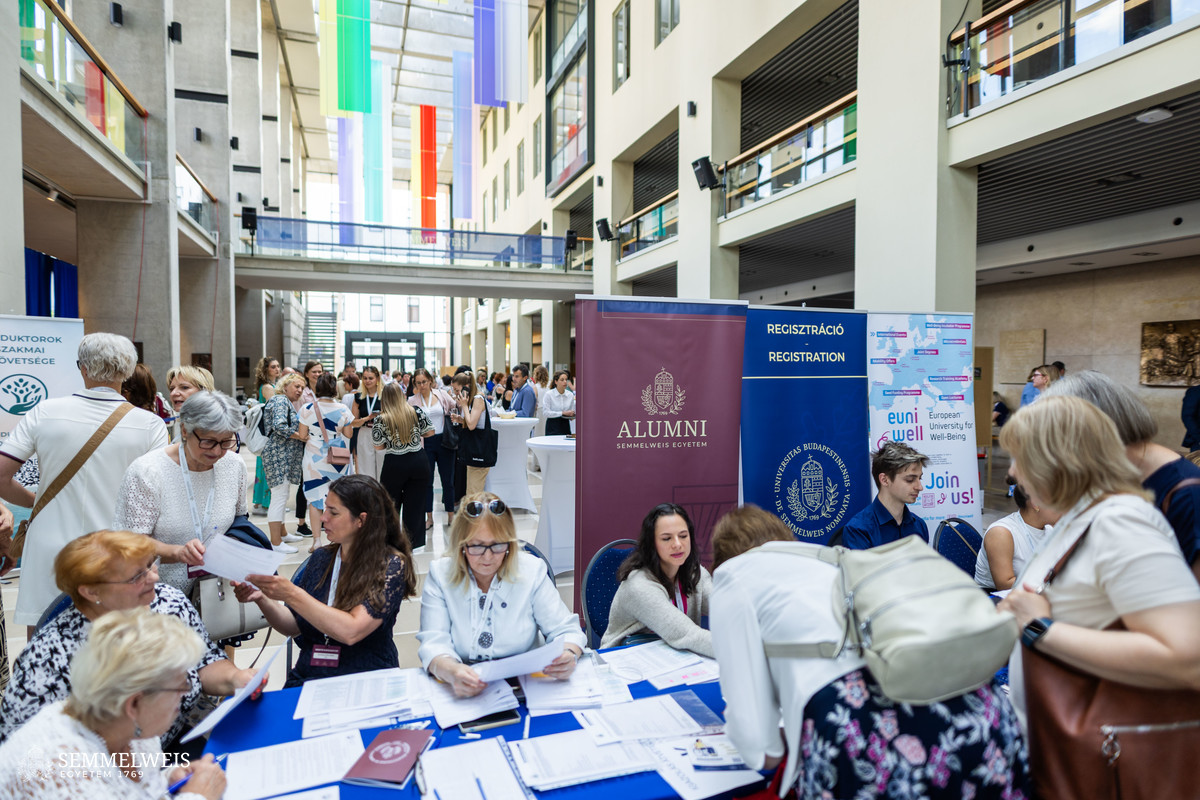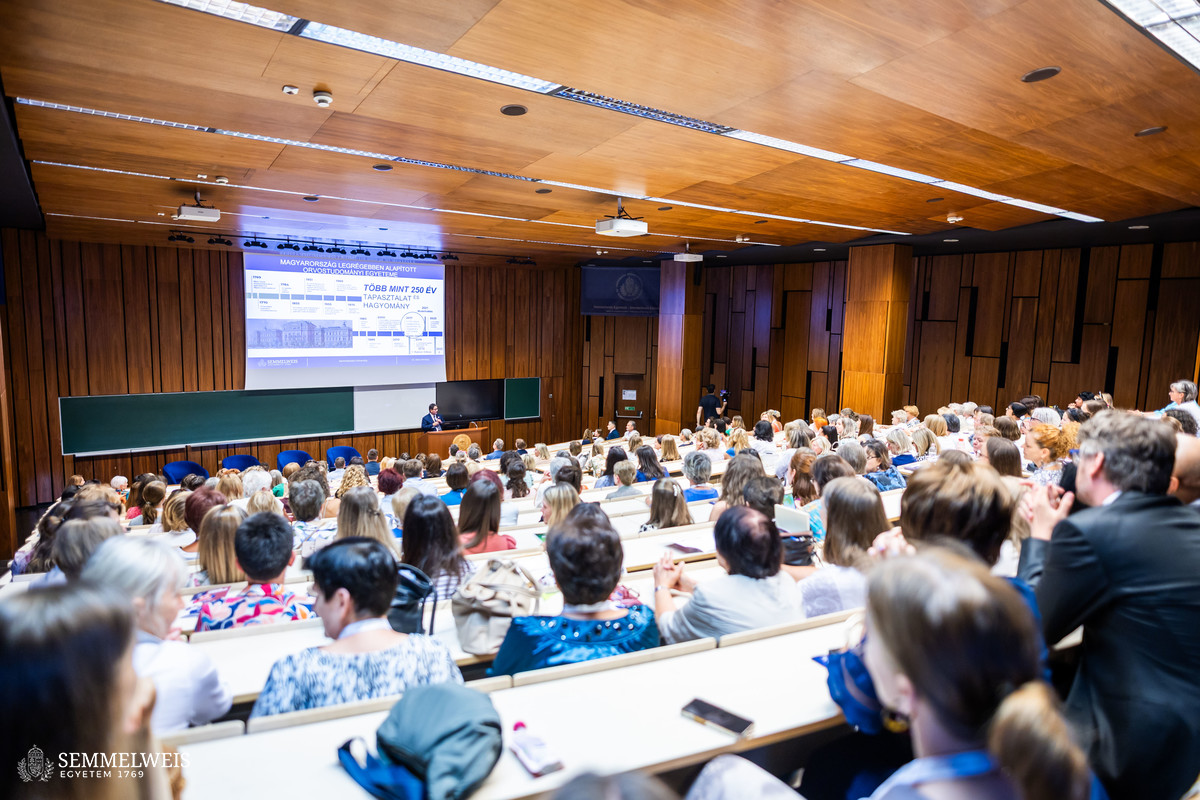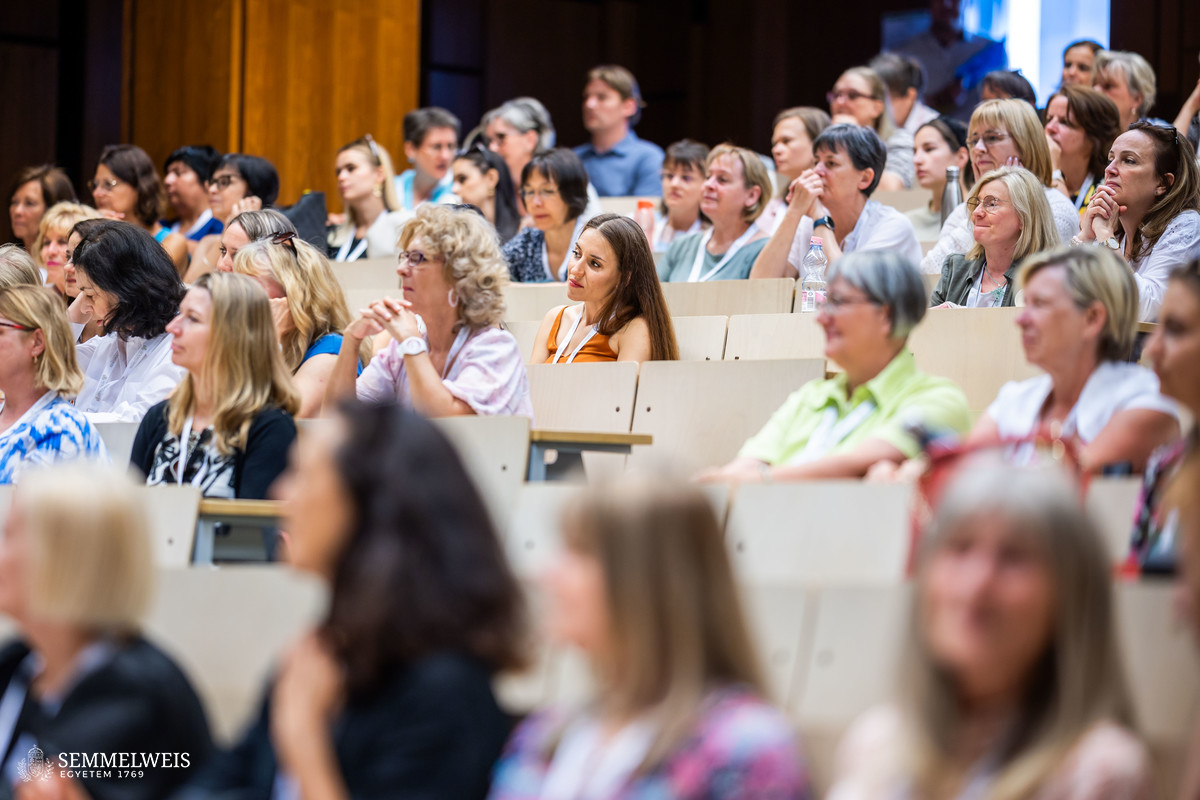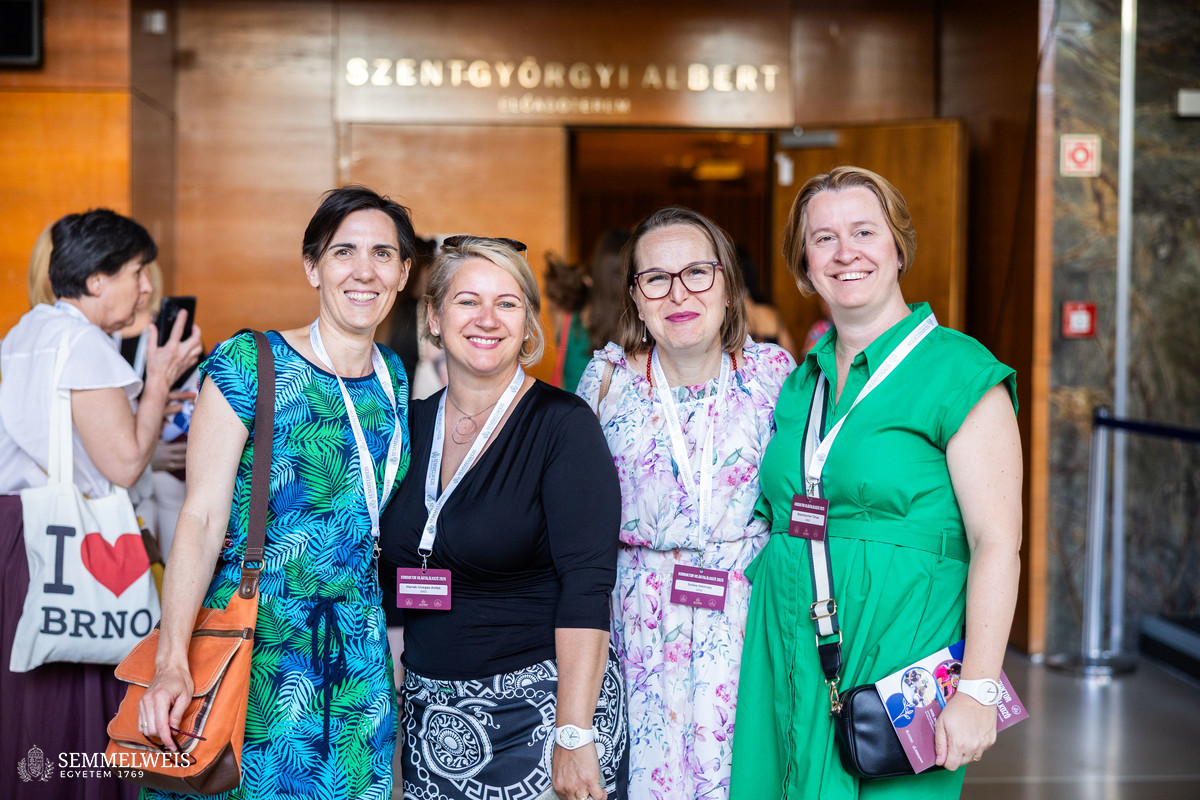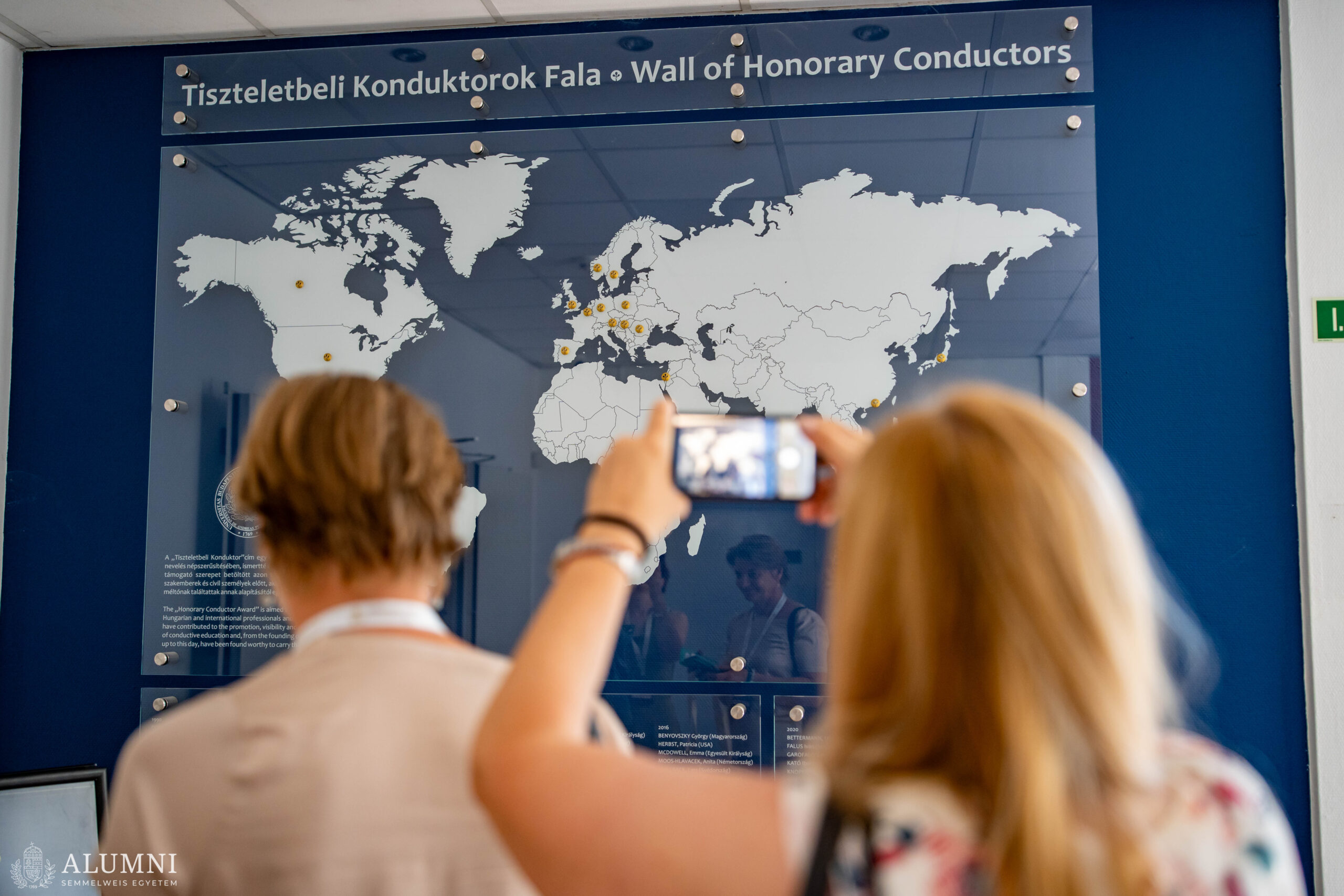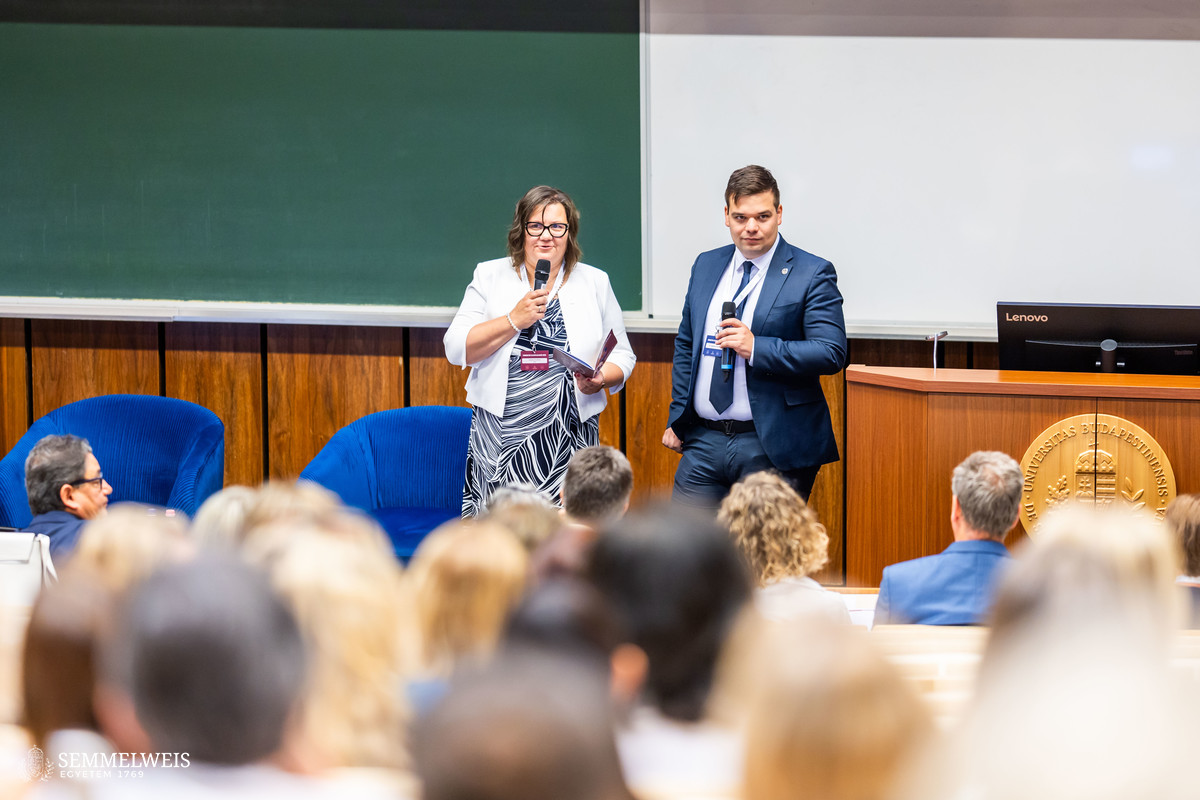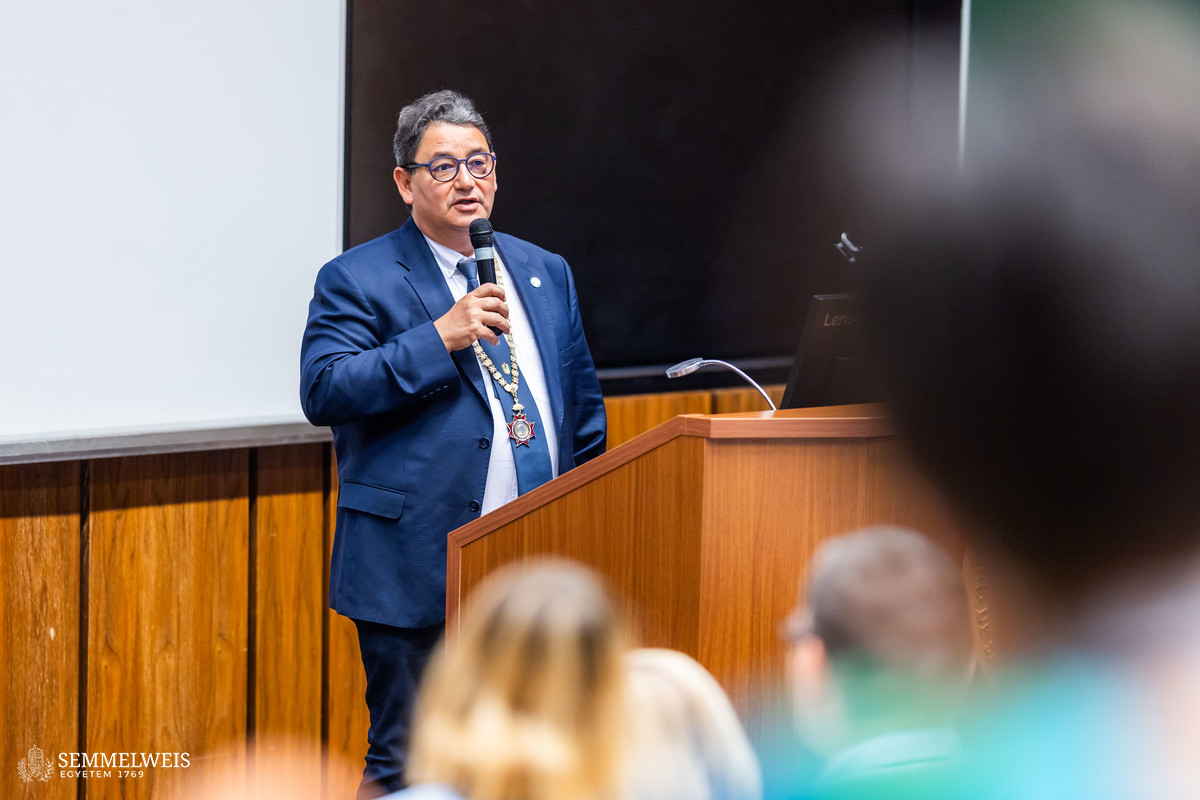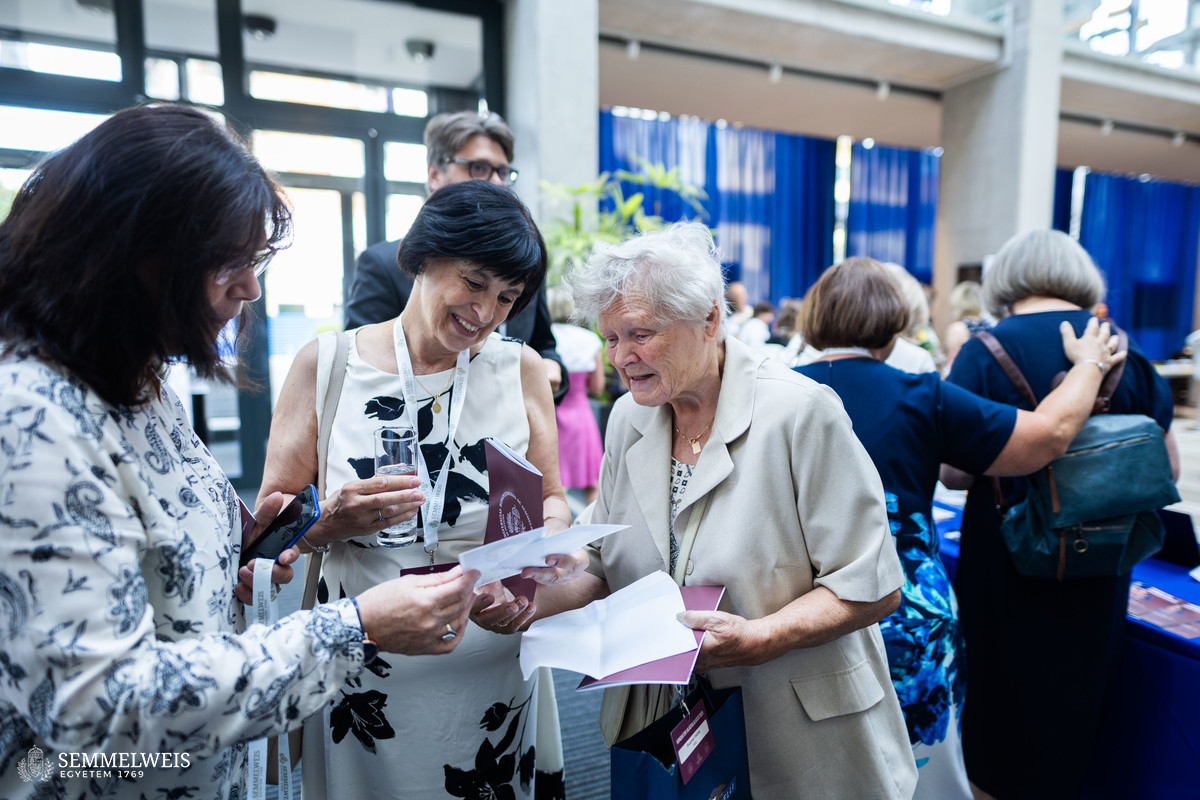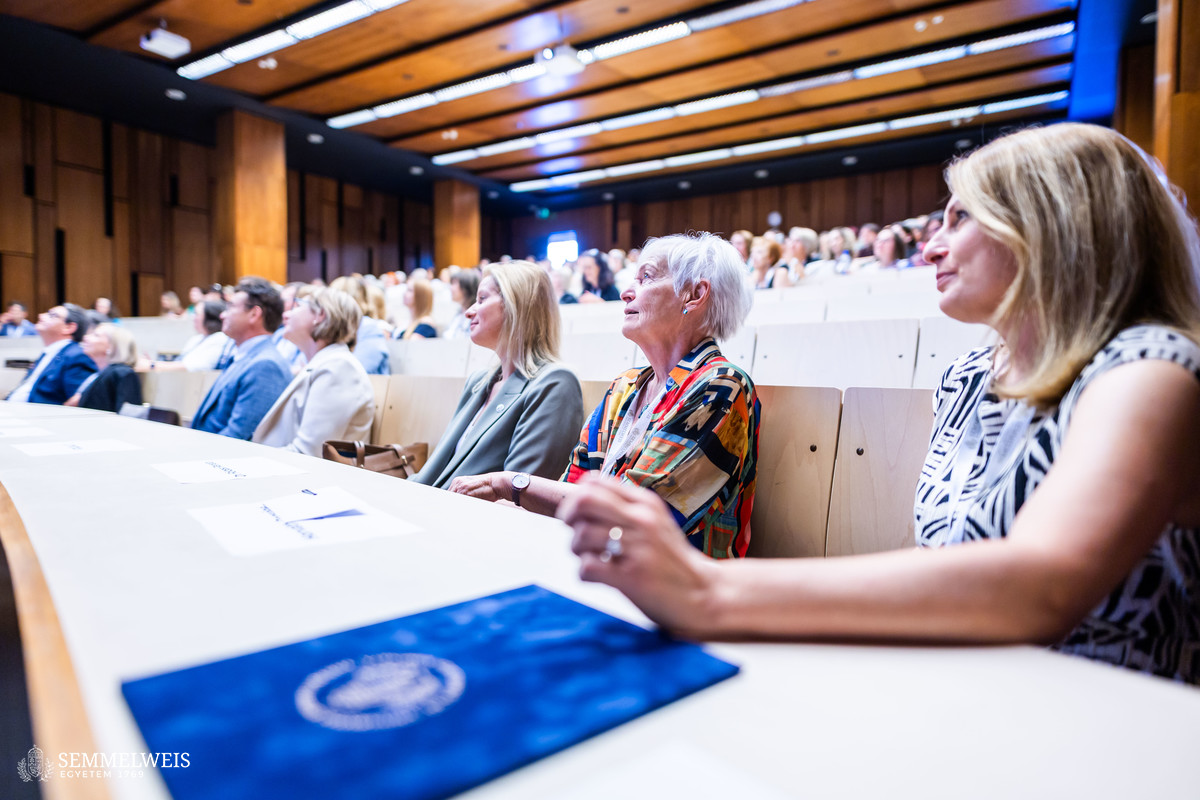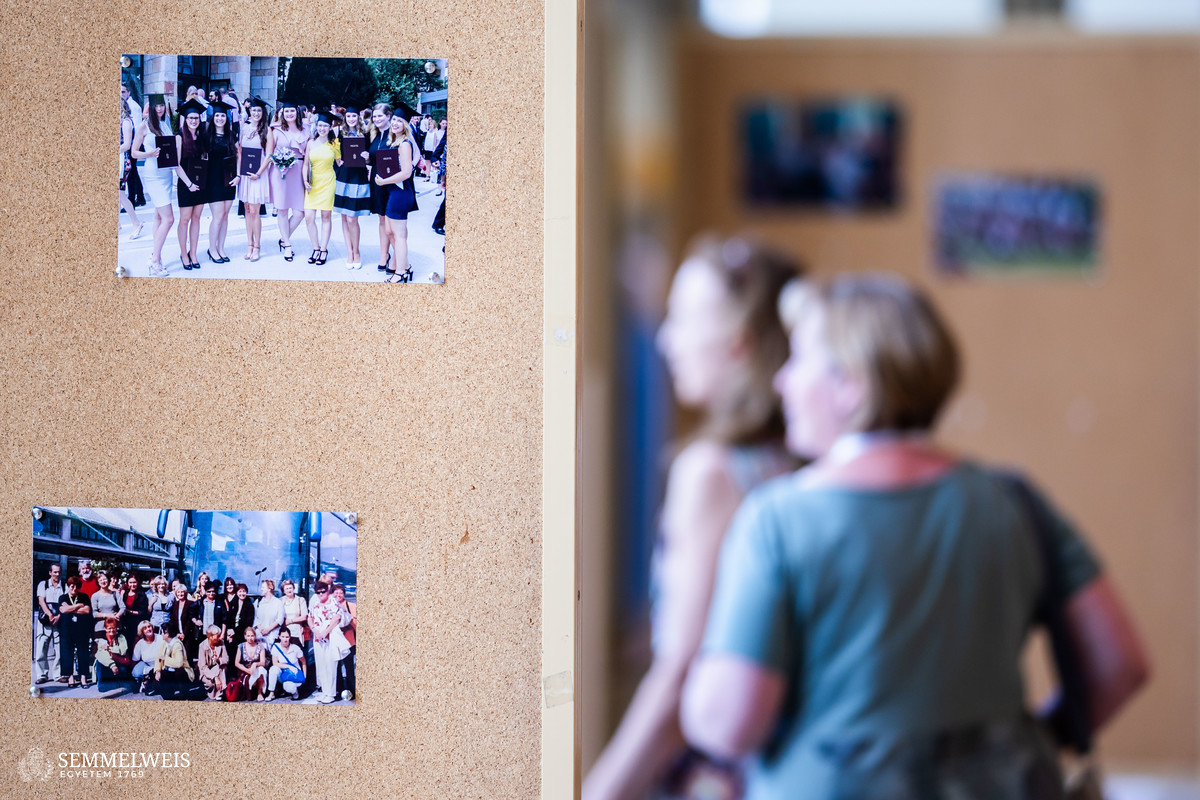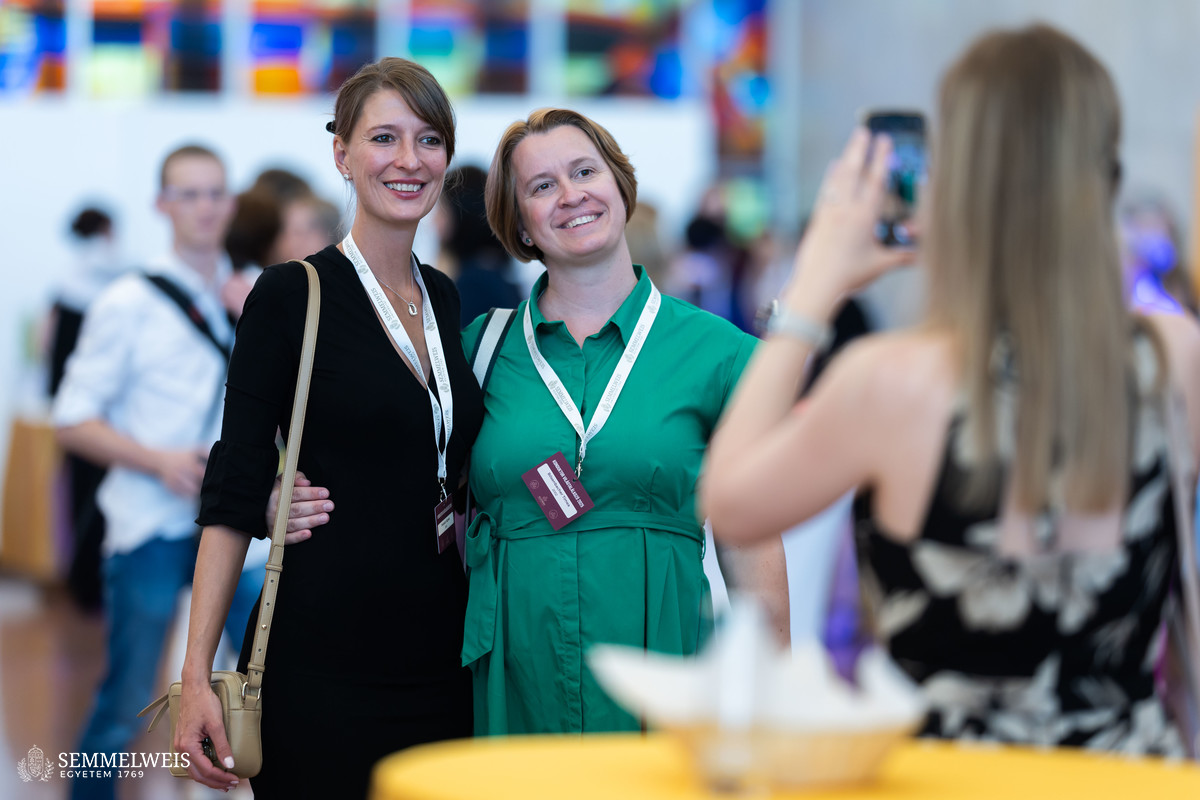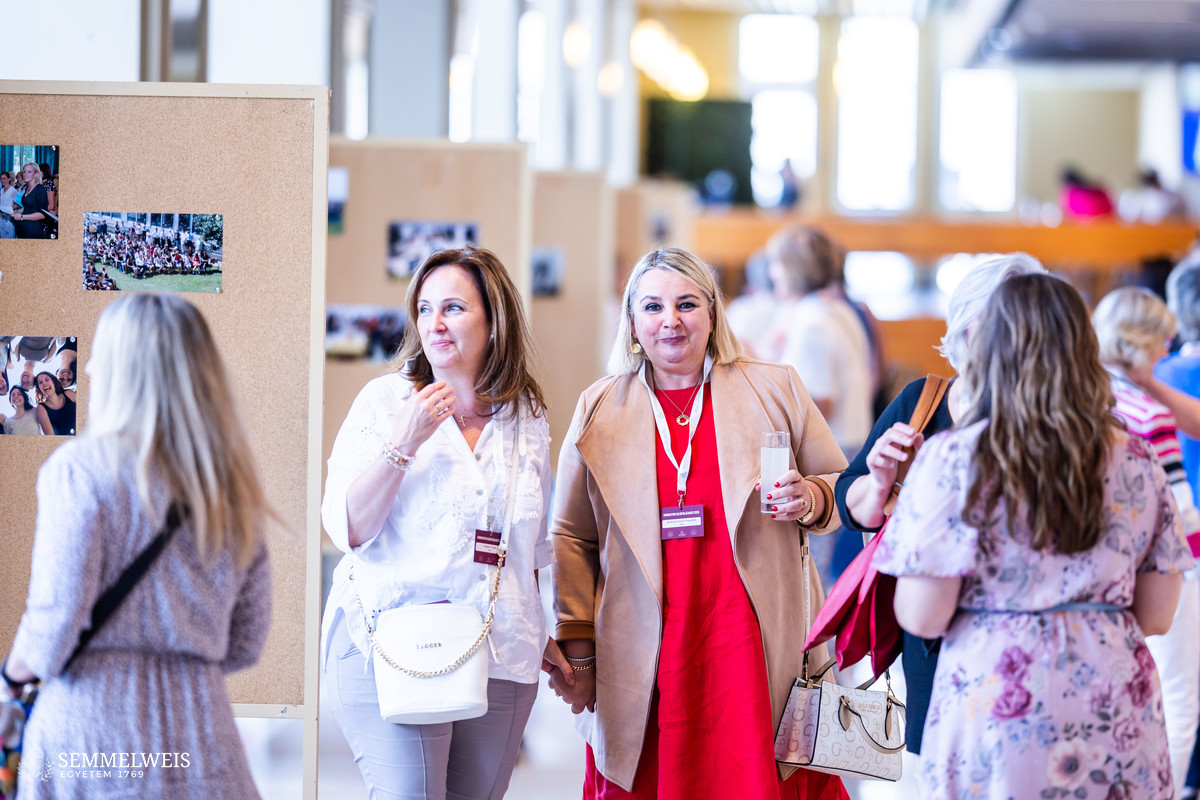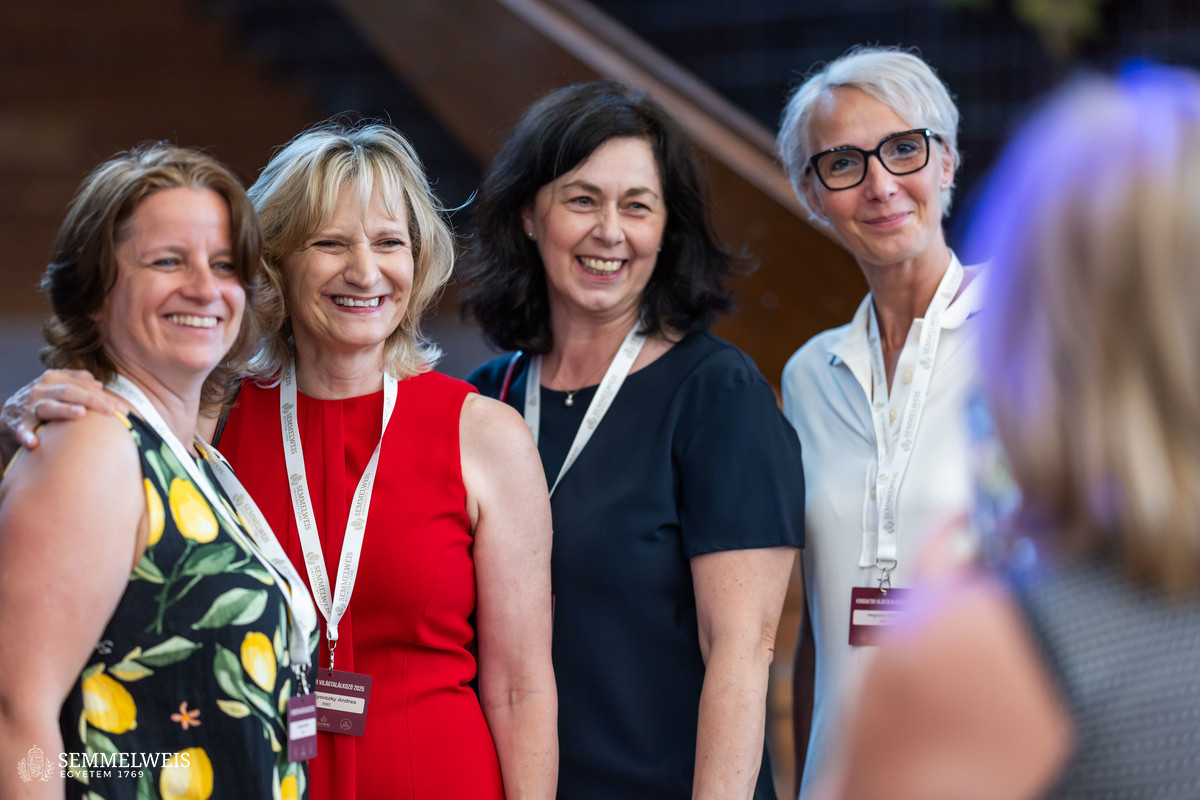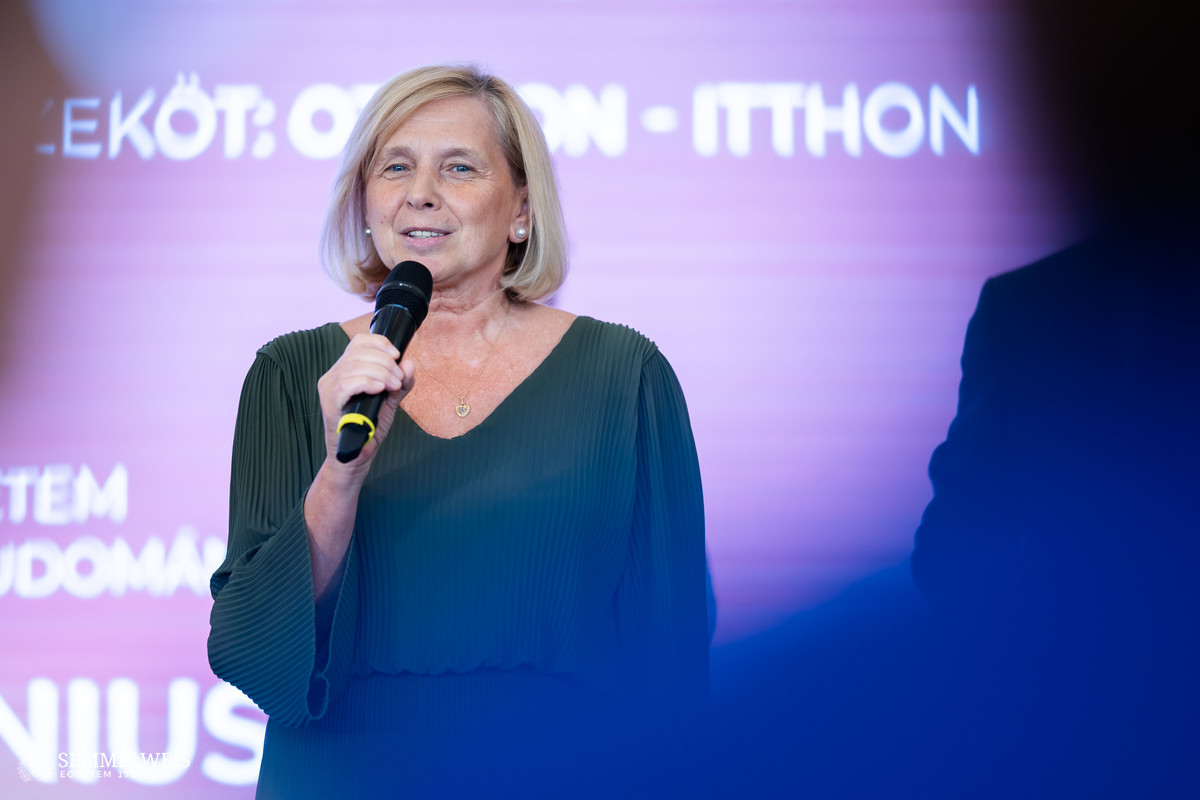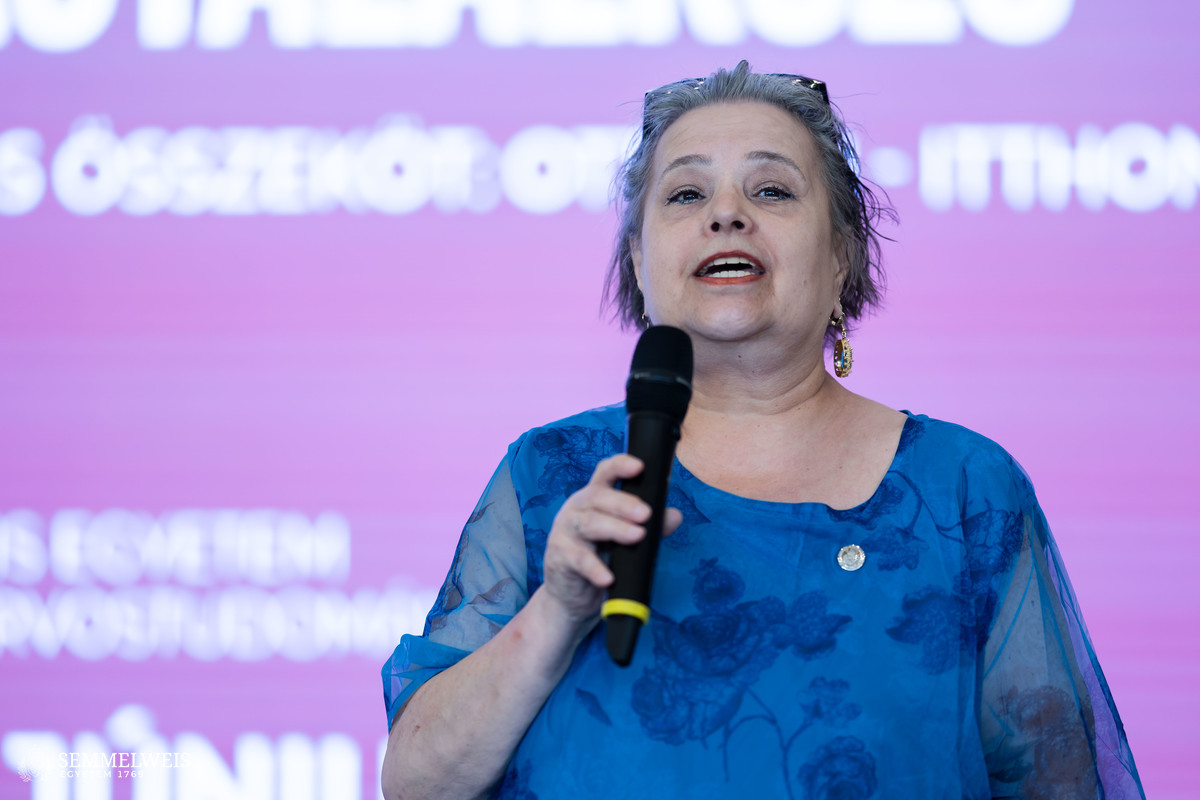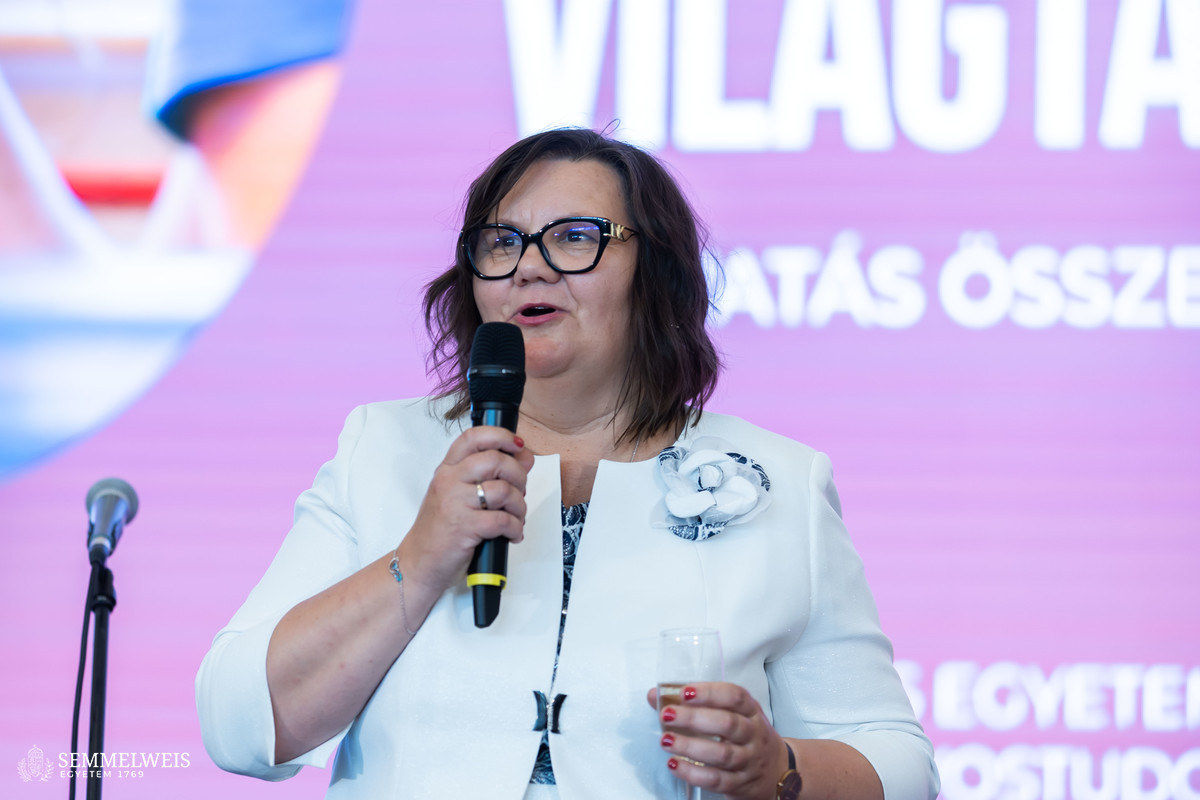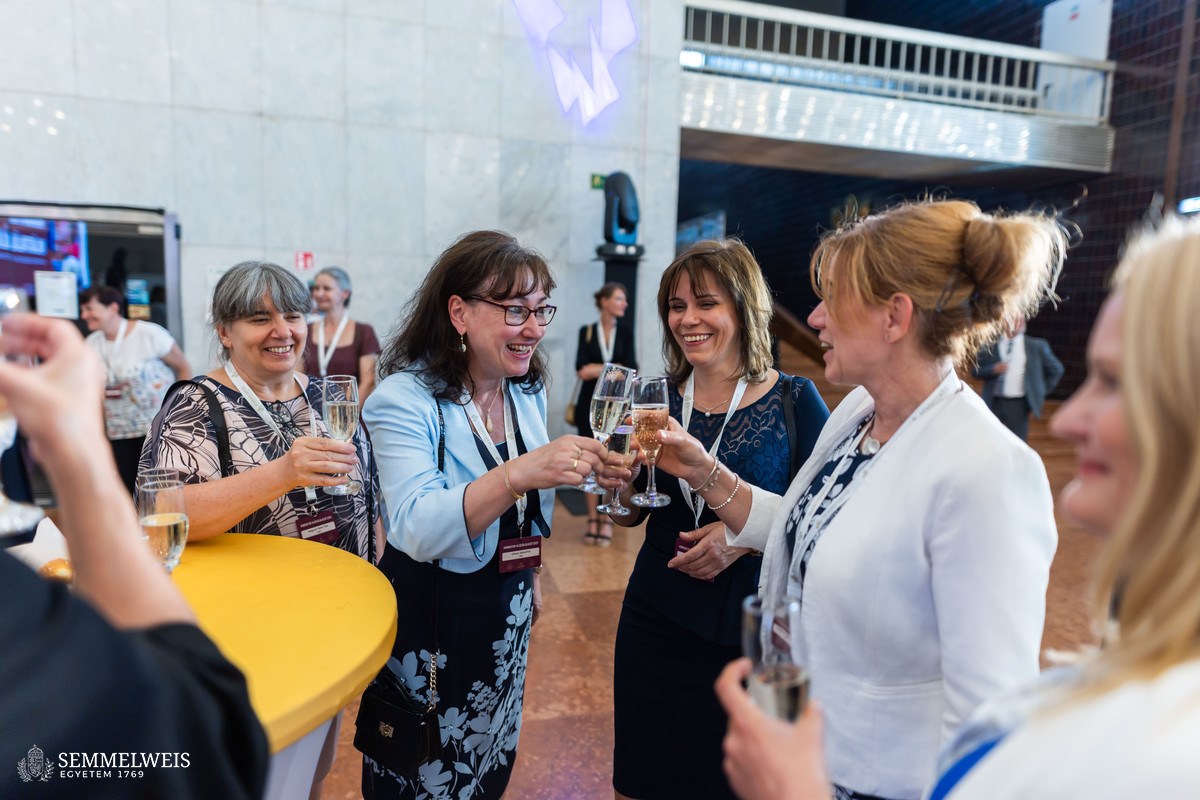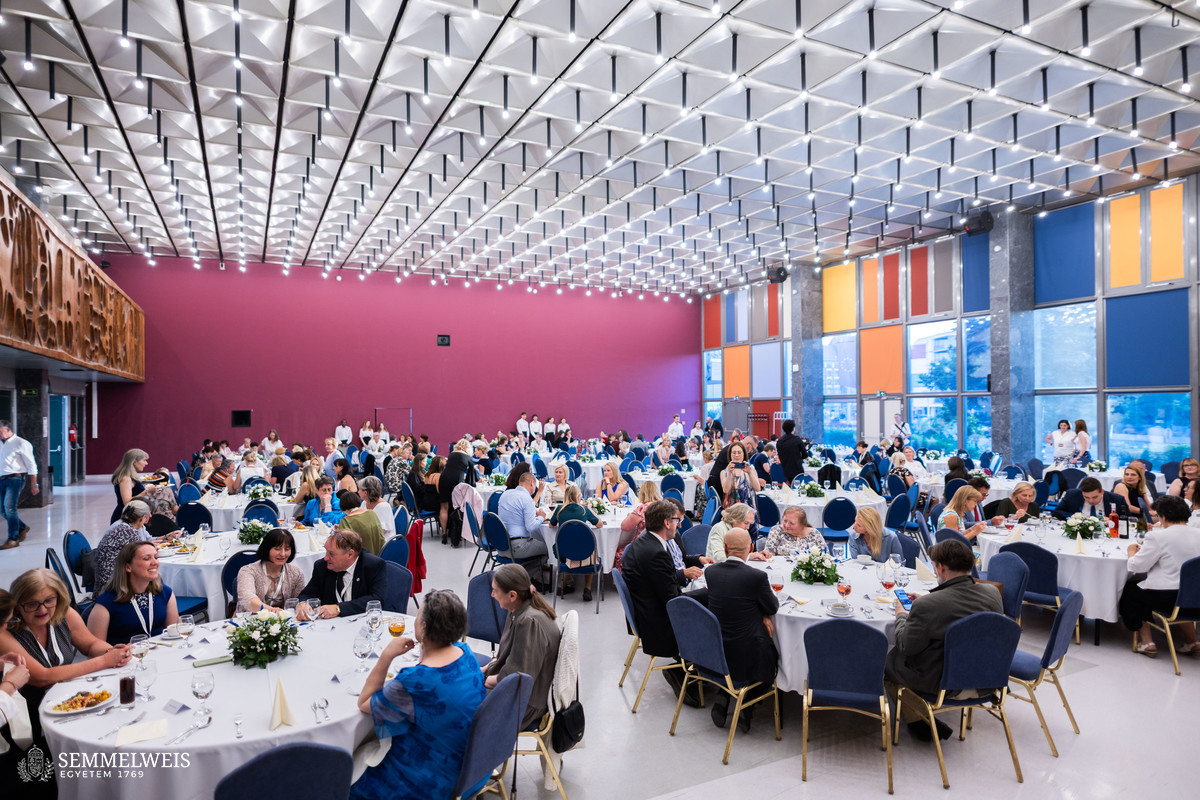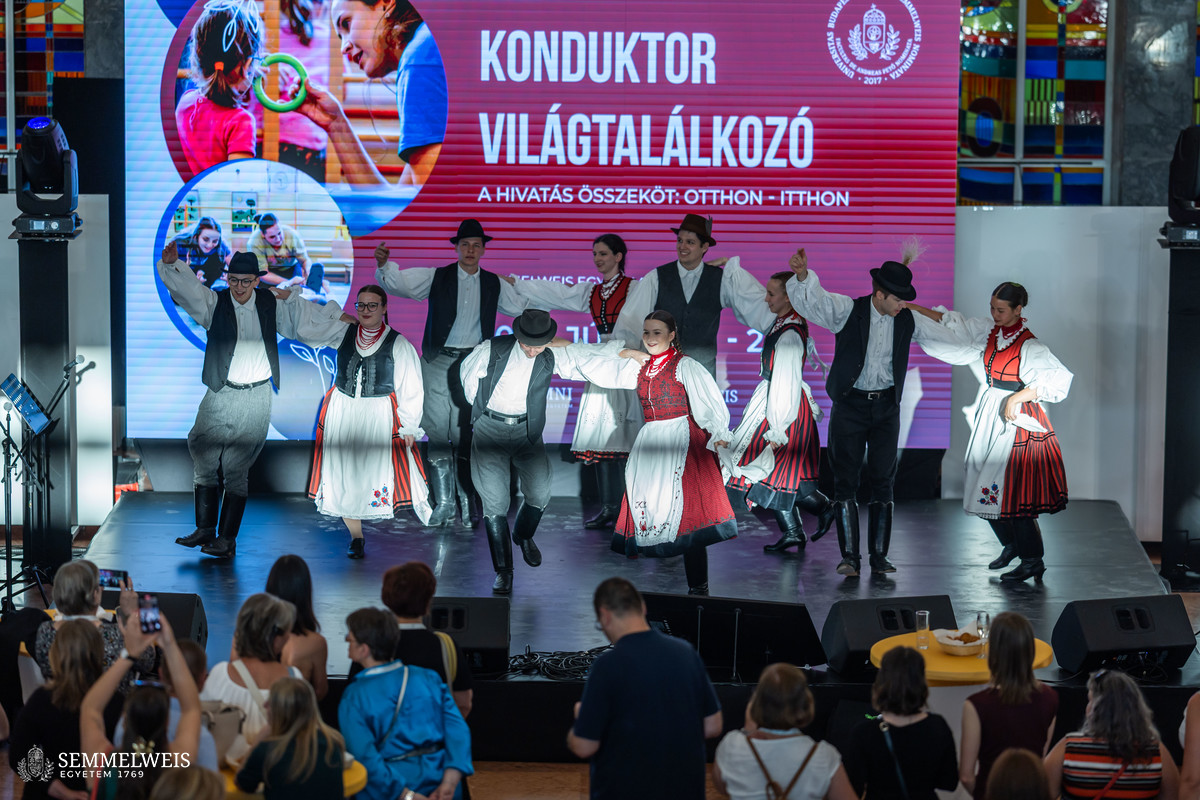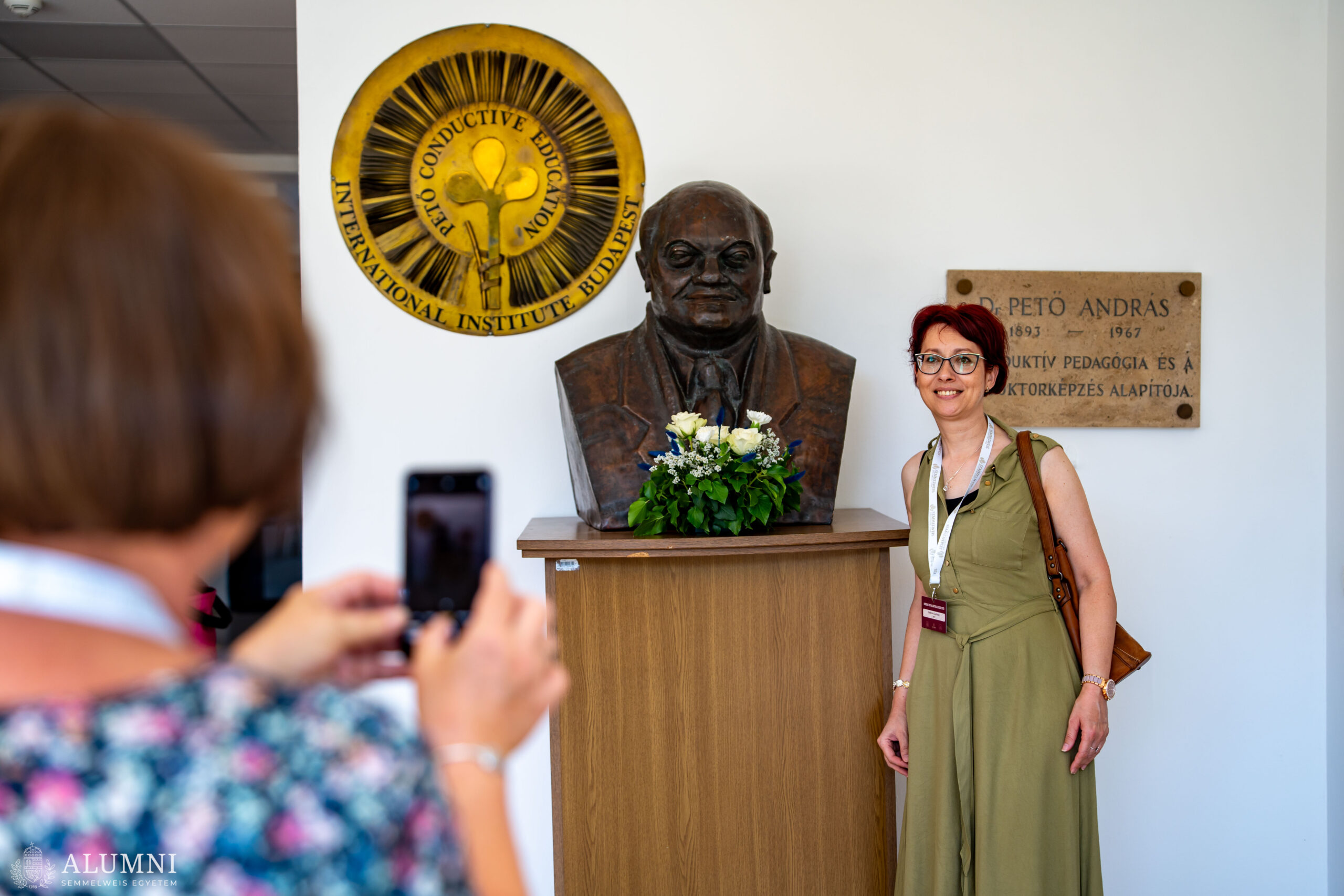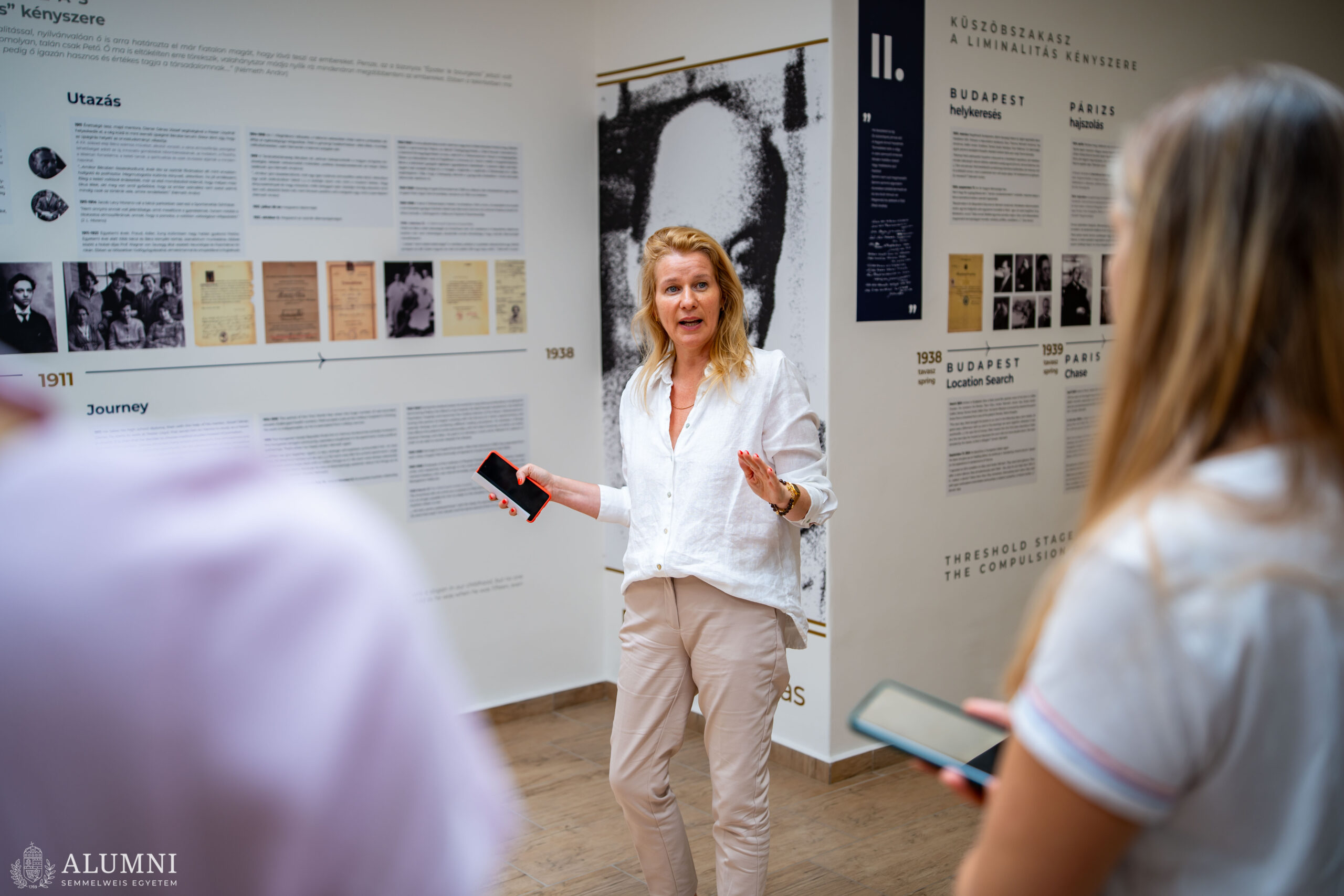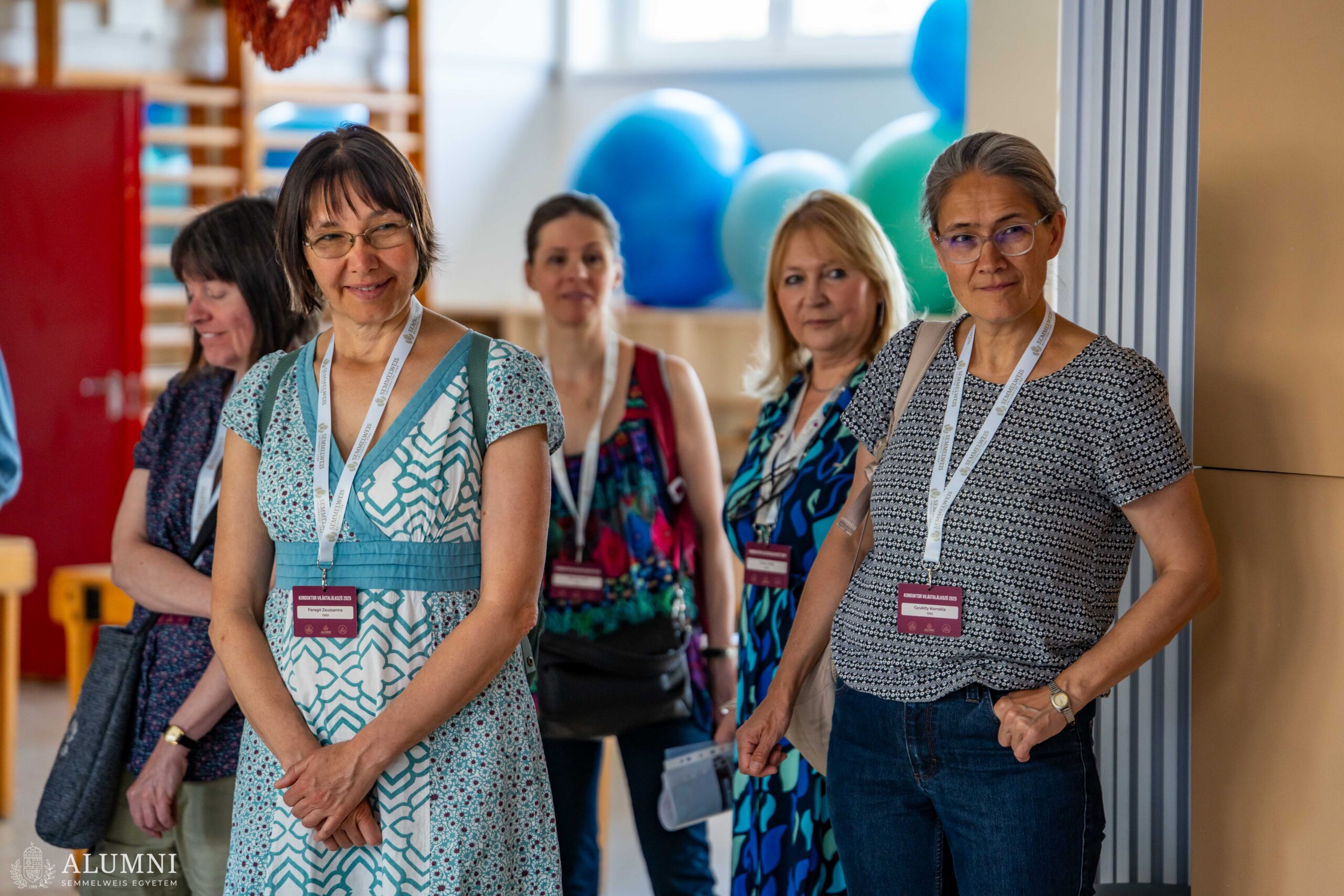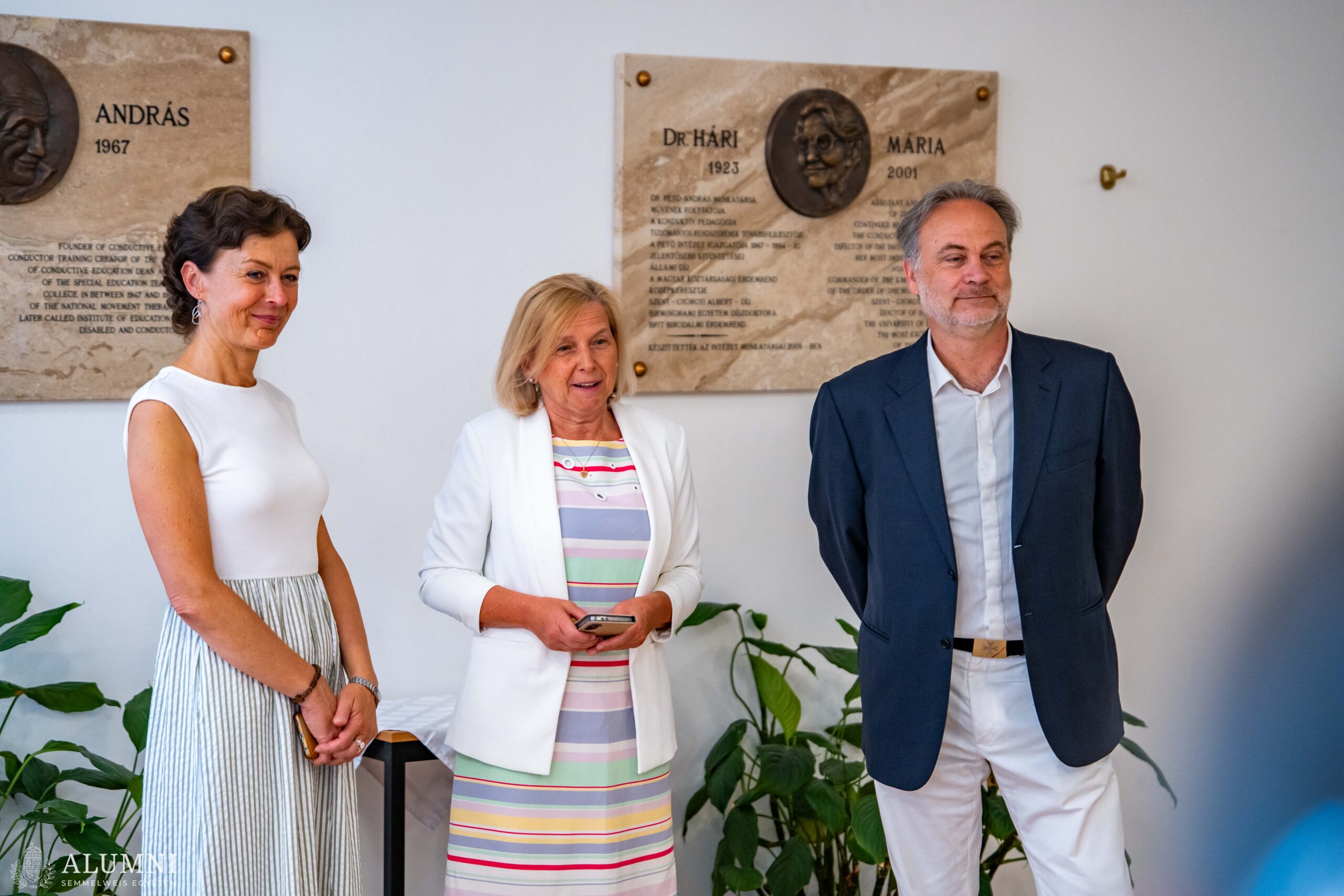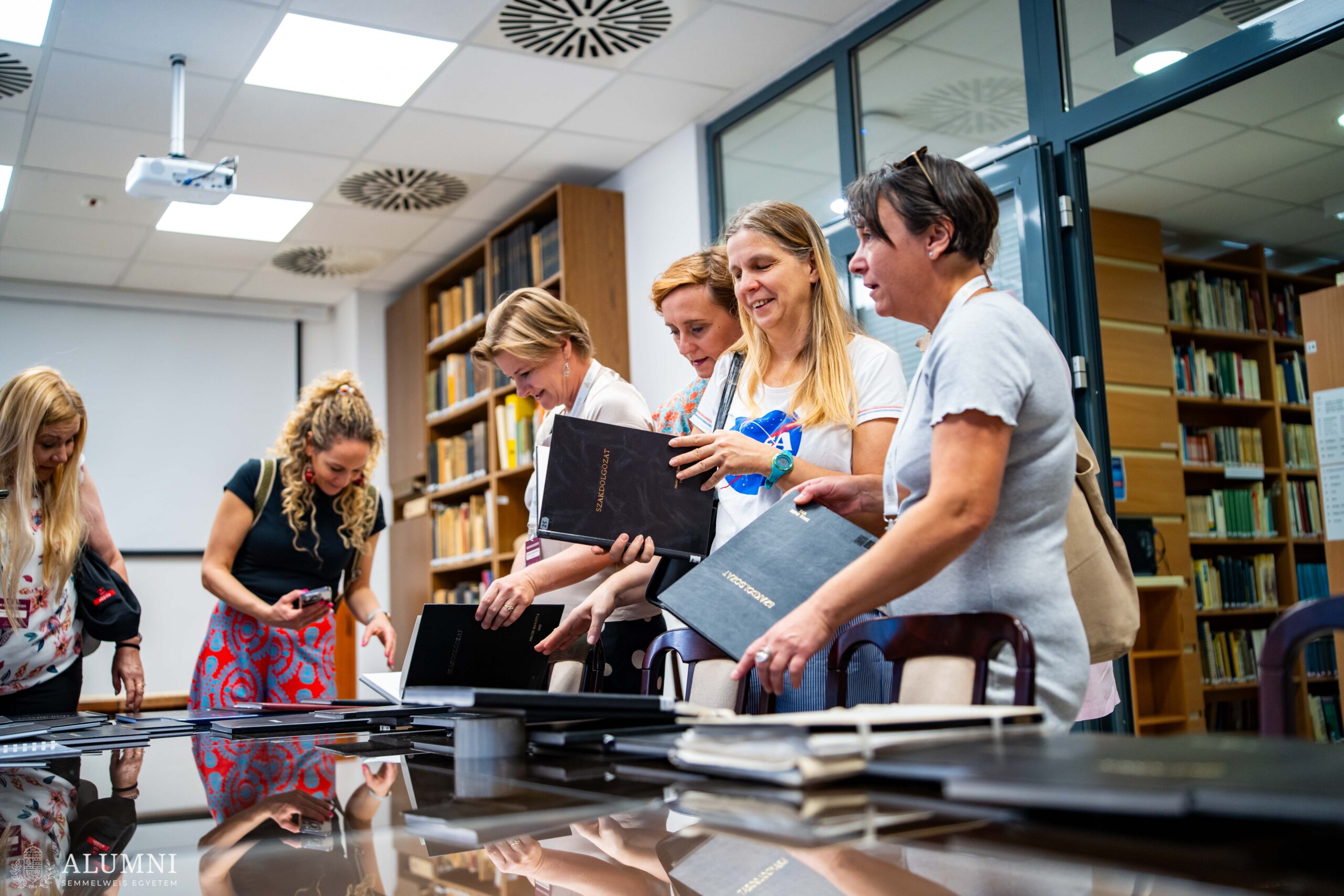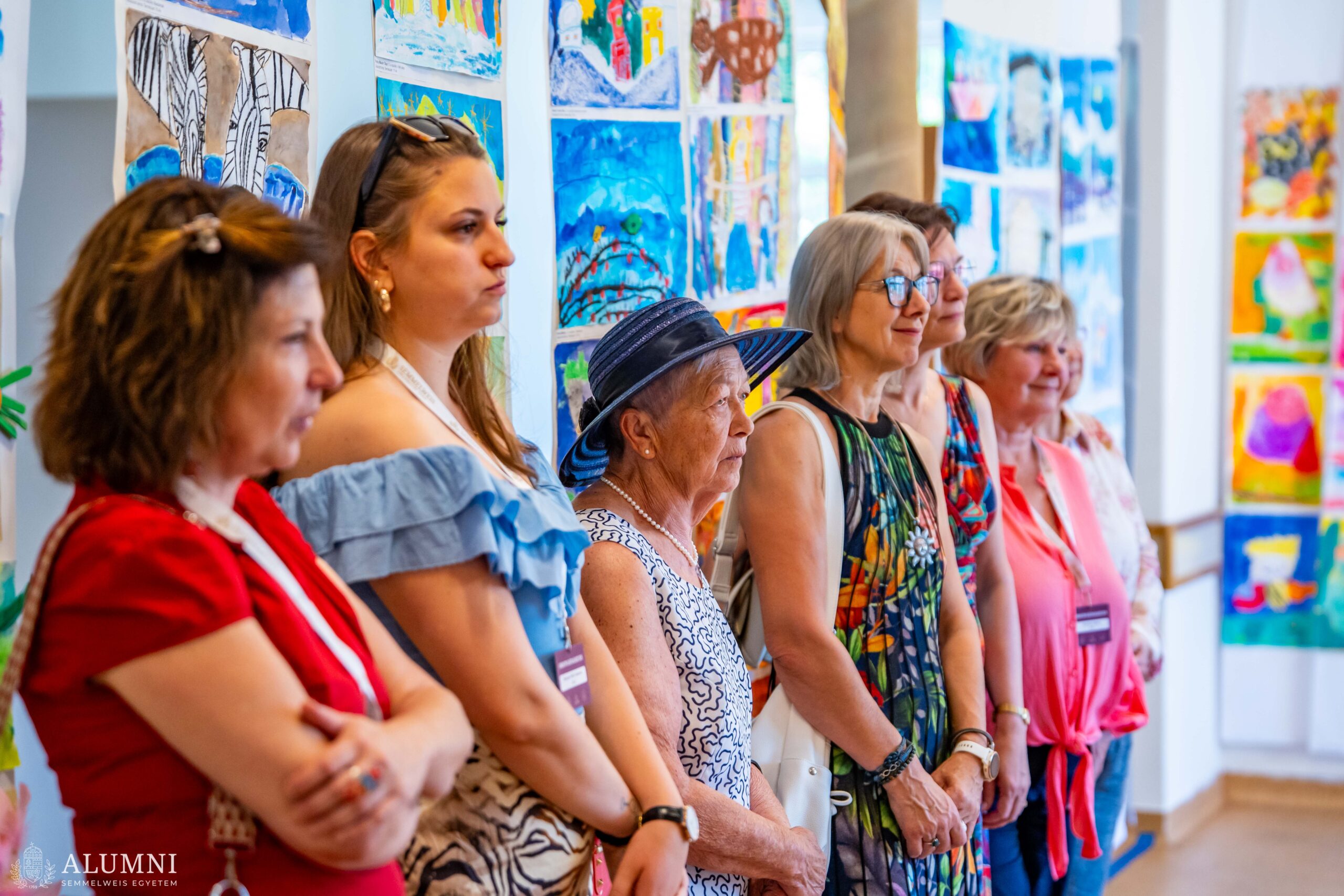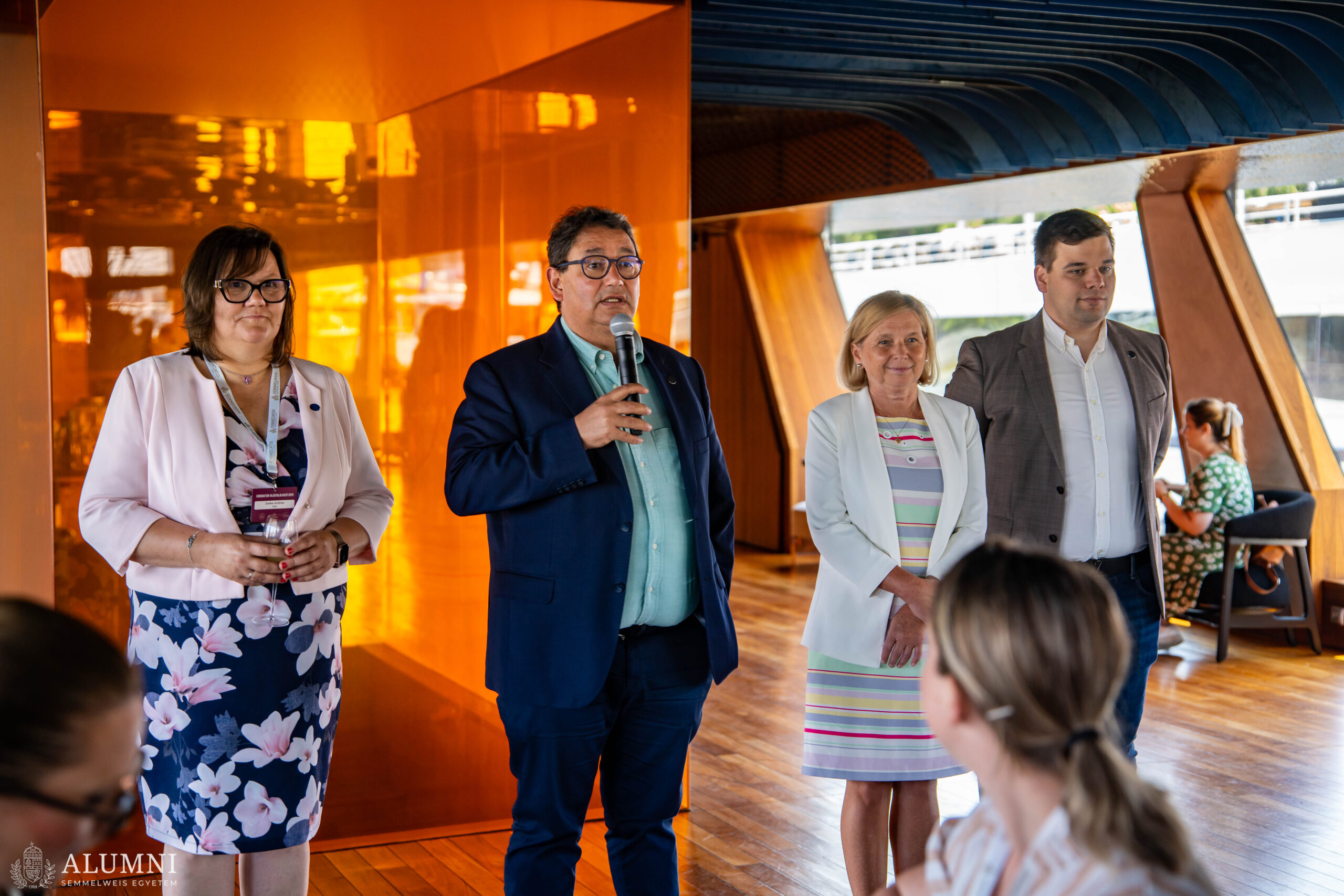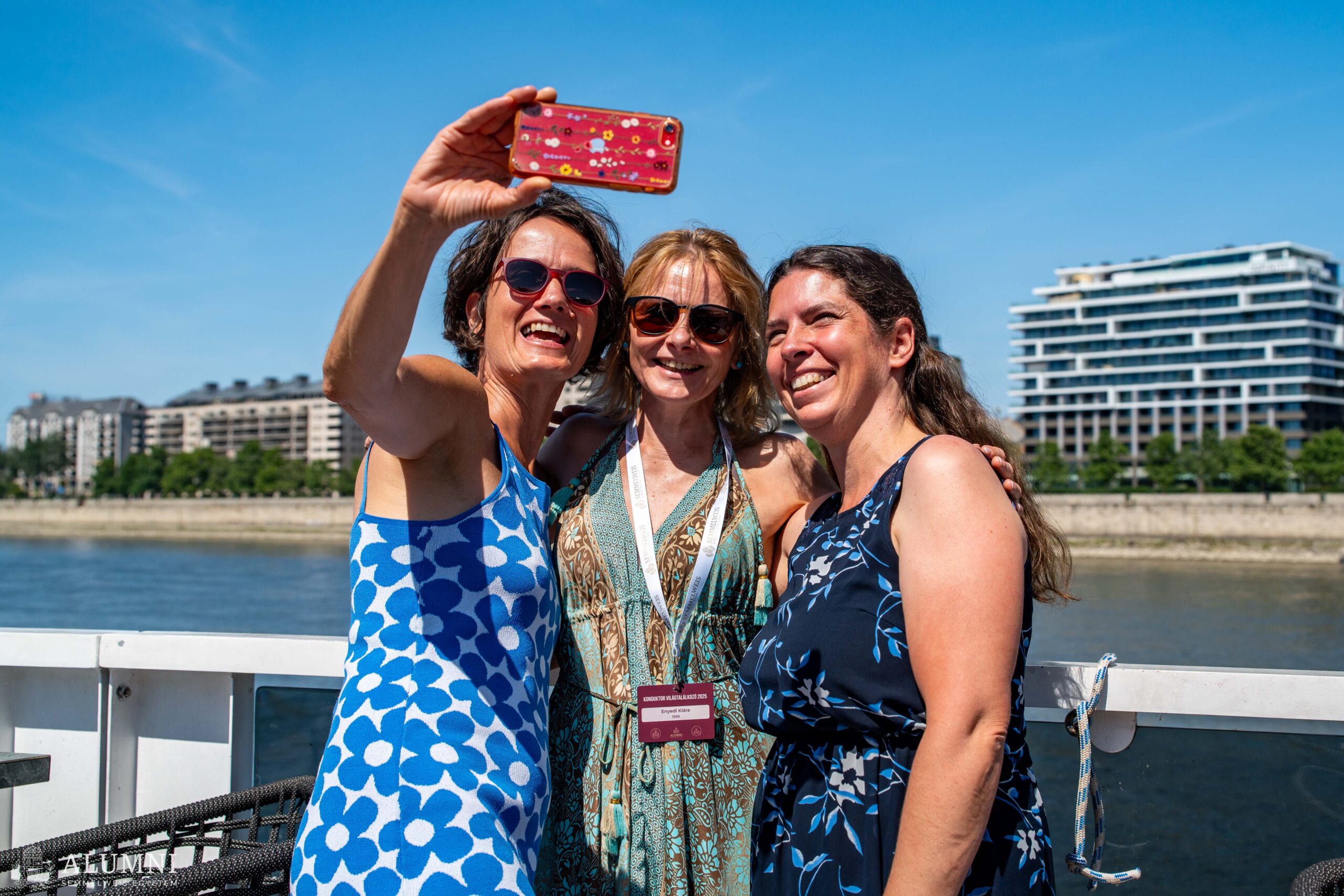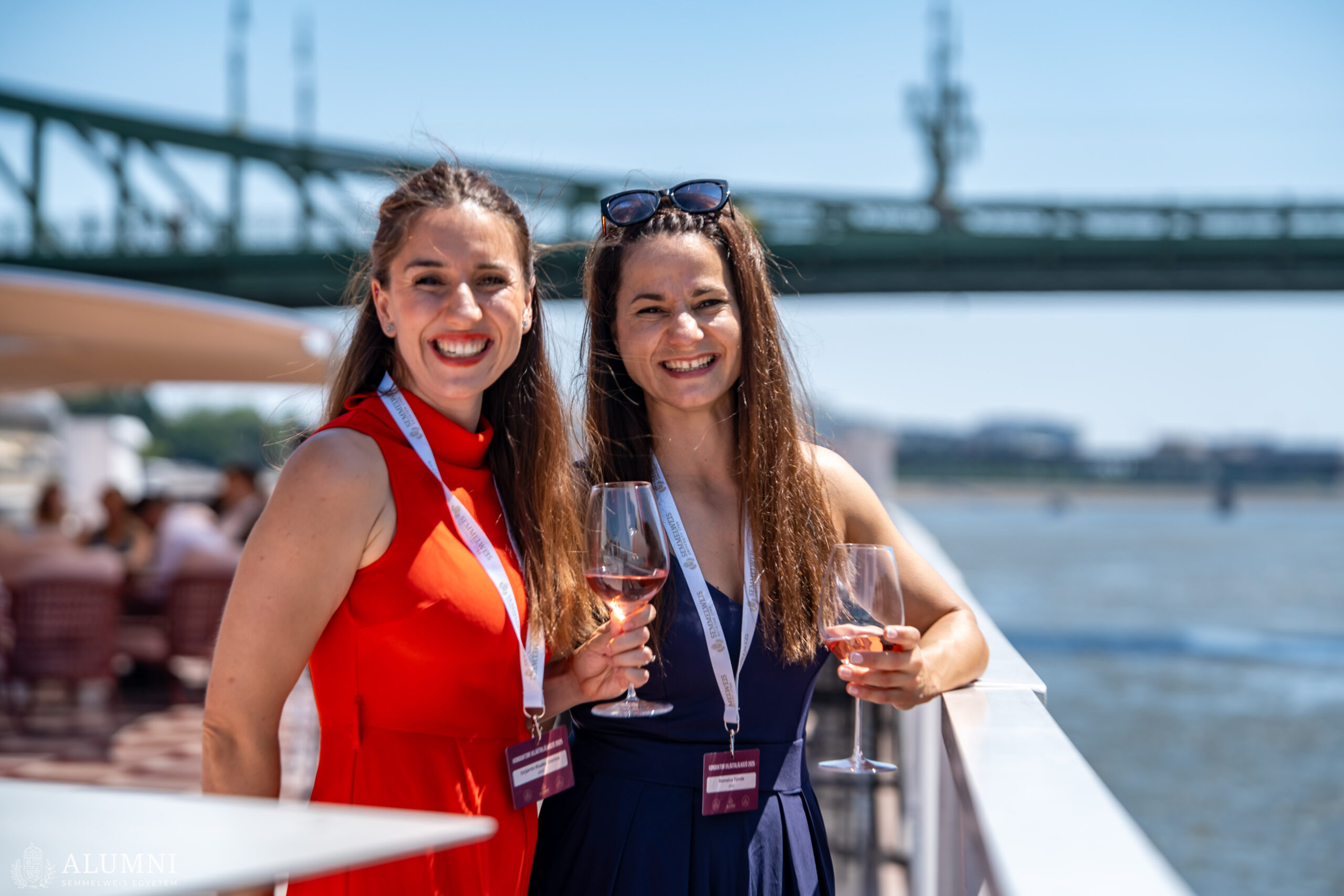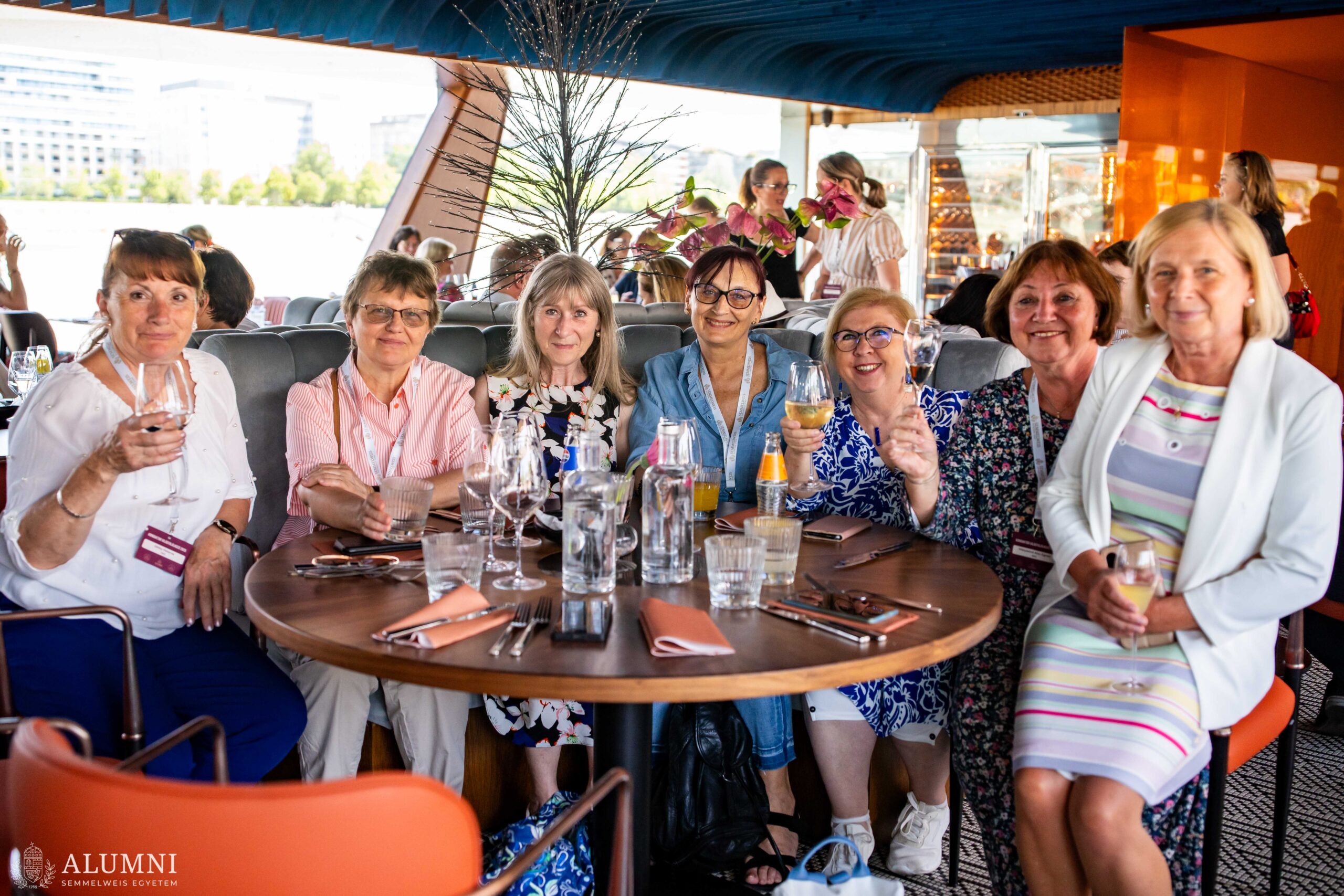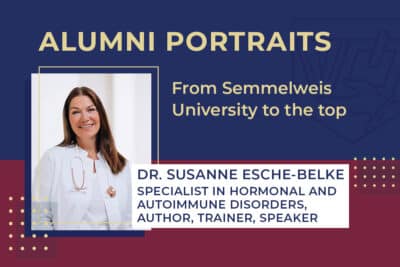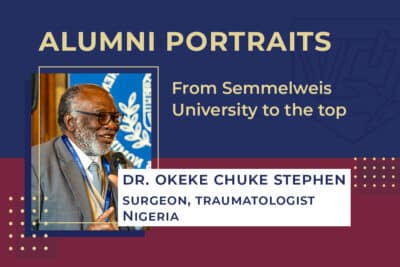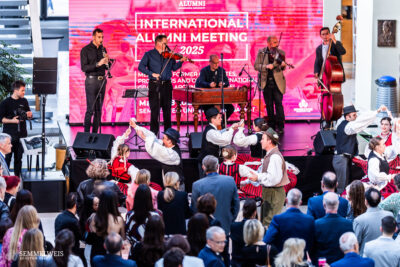The first international reunion of conductive educators was held at the summer solstice, the day with the longest period of daylight, symbolizing our desire to spend the longest possible time together with colleagues from all over the world, said Dr. Andrea Zsebe in her welcome address. The dean of PAK and host of the event pointed out that the very first cohort of conductors was launched on September 1, 1965. In the past 60 years, 2,560 students have qualified as conductive educators, demonstrating that emphasis has never been on large-scale training.
This year, 330 participants from 11 countries have registered for the event. We had had the opportunity to convene before; the first international conference on conductive education was held in Budapest in 1990, and the former organizers of the conference are among our guests today. However, this occasion is more about celebrating in a relaxed and professional atmosphere. – Dr. Andrea Zsebe
This event is the result of a year and a half’s work, said Dr. Tamás Hegedüs, Director for International Relations and Alumni Affairs and co-host of the reunion. Alumni came from Australia, Austria, Brazil, Germany, Italy, Romania, Sweden, New Zealand, the United Arab Emirates, the United Kingdom, and the United States.
“We witnessed joyful encounters at the on-site registration, as many of the attendees have not seen each other for many years, or even since graduation. Their smile and joy motivate us to host more events like this in the future,” the director noted.
Next, Dr. Béla Merkely, Rector of Semmelweis University, welcomed the participants of the international meeting and gave a comprehensive overview of the university, its history, and its vision for the future. He stressed that over the past 60 years, conductive educator training has become widely recognized and internationally renowned, and is now a so-called hungaricum, i.e., a uniquely Hungarian cultural heritage of national value, attracting interest in many countries around the world. He then spoke of the university’s formative persons, including András Pető, the founder of the conductor training program.
Elaborating on the main goals, he mentioned that the university aimed to train the best doctors, health professionals, and conductive educators, and equip them with the knowledge to succeed anywhere in the world. Alongside the traditionally strong theoretical education, significant progress has been achieved in recent years in terms of practice-oriented training, and the András Pető Faculty and its experts have also contributed significantly to this, the rector pointed out. Semmelweis University’s prominent position in the rankings is largely due to its strong international relations, and these contacts can also offer professional advantages, development opportunities, and even new training locations for PAK in the future, complementing the already successful Hungarian-language training sites in Romania and Serbia. He emphasized the university’s pride in this training. The institution nurtures official relations with conductive education organizations in 21 countries, and it also fulfils a transborder mission in 21 Hungarian-inhabited municipalities, where conductive education is provided to 800 families every year.
The András Pető Faculty has become an integral part of Semmelweis University, which is also reflected in the curriculum: Students of the Faculty of Medicine (ÁOK) are required to complete an internship at PAK, and conductive pedagogy is offered in all three languages of education. The rector added that PAK closely cooperates with other faculties in terms of teaching and final exams as well.
The series of events continued with professional programs and presentations on the anatomy of cognitive learning, the latest advances in the diagnosis and therapy of childhood epilepsy, followed by a round-table discussion on the present, challenges, and future of conductive pedagogy. In the evening, guests were welcomed by leaders of the András Pető Faculty, Dean Dr. Andrea Zsebe, Dr. Éva Feketéné Szabó, Vice-Rector for Strategy and Development and Director of the Center for Conductive Pedagogy, and Chief Financial Officer Éva Rakonczai. The gala dinner was preceded by a presentation on the characteristics and new directions of the training. On the second day of the event, participants had the opportunity to visit the campus and city sights.
Róbert Tasnádi
Translation: Judit Szabados-Dőtsch
Photos by Bálint Barta – Directorate of Communication; Zoltán Lipták – Directorate for International Relations and Alumni Affairs
